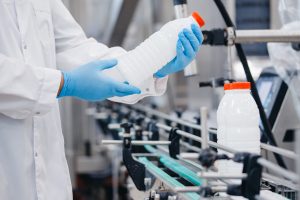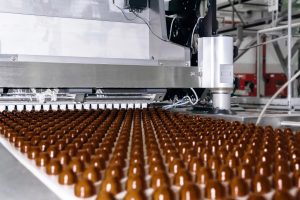
Product quality and safety are critical to the food industry. Product recalls can cause millions of dollars, permanently destroy brand reputation, and can even civil and criminal liabilities.
Unfortunately, the rate of food recalls is increasing, and can be one of the biggest threats to a food company’s profitability, says Food & Safety Magazine.
The cost of product recalls
According to the Grocery Manufacturers Association (GMA) in the United States, food recalls cost companies an average of $10 million in direct costs, and even larger indirect costs from lost sales, insurance, lawsuits, and compliance penalties. The following are some indirect costs a company can experience:
- Stopping production
- Removing and destroying contaminated products
- Investigating and testing to identify the source of the problem—as well as other recall tasks that will require additional manpower and technology
- Lost sales from pulling both contaminated products and even the entire product range
- Insurance impacts, including increased annual fees and possible cancellation of the plan
- Legal fees, settlements, and damages
- Penalties from regulatory boards, including fines, shutting down of operations, suspension of registration
- Drop in the company’s stock value
Aside from this, a company will often suffer a media backlash, intense public scrutiny, and overall loss of brand confidence. Customers may decide to switch to another product, or even avoid all products by the manufacturer.
This can lead to a long-term sales depression that can take years to shake off, and only with an extensive marketing and public relations campaign.
Quality control requires material control
Poor material flow can have a huge impact on product quality and safety. Stagnant material can become spoiled and rancid, and develop mold, bacteria, and other microorganisms. Inconsistent flow can cause inconsistent flavor, texture, and nutritional value.
However, many food materials have inherently problematic flow properties. Powders can bind to form a cohesive arch. Flax, cocoa or other materials with a high fat content can cake or clog pipes or filters. Other materials can also settle during storage, and absorb moisture from the air to form hard clumps.
So to get their process going—and ensure that they get first in, first out flow—food companies need a reliable material flow aid like AirSweep.

AirSweep in the Food Industry
AirSweep’s powerful bursts of compressed air sweep stagnant material back into the flow stream, and flush the vessel completely clean. It improves productivity, saves time and money from manual hammering and cleaning, and protects product quality.
A commercial bakery had issues with flax oils caking in the discharge up to the filters. They had to throw away 40 pounds of mixture a day, and even had to pay to have it hauled away. Vibrators hardened the discharge—“practically turned the flax into concrete,” the maintenance head described. Fluidizers were too weak to activate the material. AirSweep was the only material flow aid that worked. “’it gets 10 out of 10!”
A spice manufacturer also uses AirSweep to clean its flush ribbon blenders between batch runs. The system has helped them save $200,000 from flushing material alone.
One of the world’s largest infant formula manufacturers uses the AirSweep USDA 135 and Straight Shooter models for both material activation and cleaning. The units are installed across their processing line—blenders, vacuum receivers, sifters, and packaging line vessels.
By pulsing the AirSweep units during and after the batch runs, they found that the powerful air pulses swept the vessel walls and inner surfaces of residual powder buildup. This made a significant, positive impact on blend uniformity and dramatically lessened the labor and time needed to clean after the batch runs were completed. This allowed them to add batch runs and increase production output.
Proven effective for the food industry
AirSweep is used in the factories of some of the biggest food manufacturers in Asia and North America, and has been proven for various bulk solids and powders, including:
- Animal feeds
- Brewers Grain
- Cocoa
- Coffee
- Corn
- Flour
- Flax
- Grains
- Hops
- Salt
- Soybeans
- Spices
- Starches
- Sugar
- Whey
You can also watch the material flow test videos to see the AirSweep at work—it can even lift sticky liquid cheese!
Designed for food safety
The AirSweep USDA-accepted models are specially designed to meet the highest standards of sanitation and hygiene. The air-tight nozzle prevents material retention and bacterial growth, and the modular construction is made for easy cleaning and inspection. For convenience, the tri-flange mount allows removal without tools.
Contact us for more information about the use of AirSweep in the food industry, and the best system for your needs.





Comments are closed